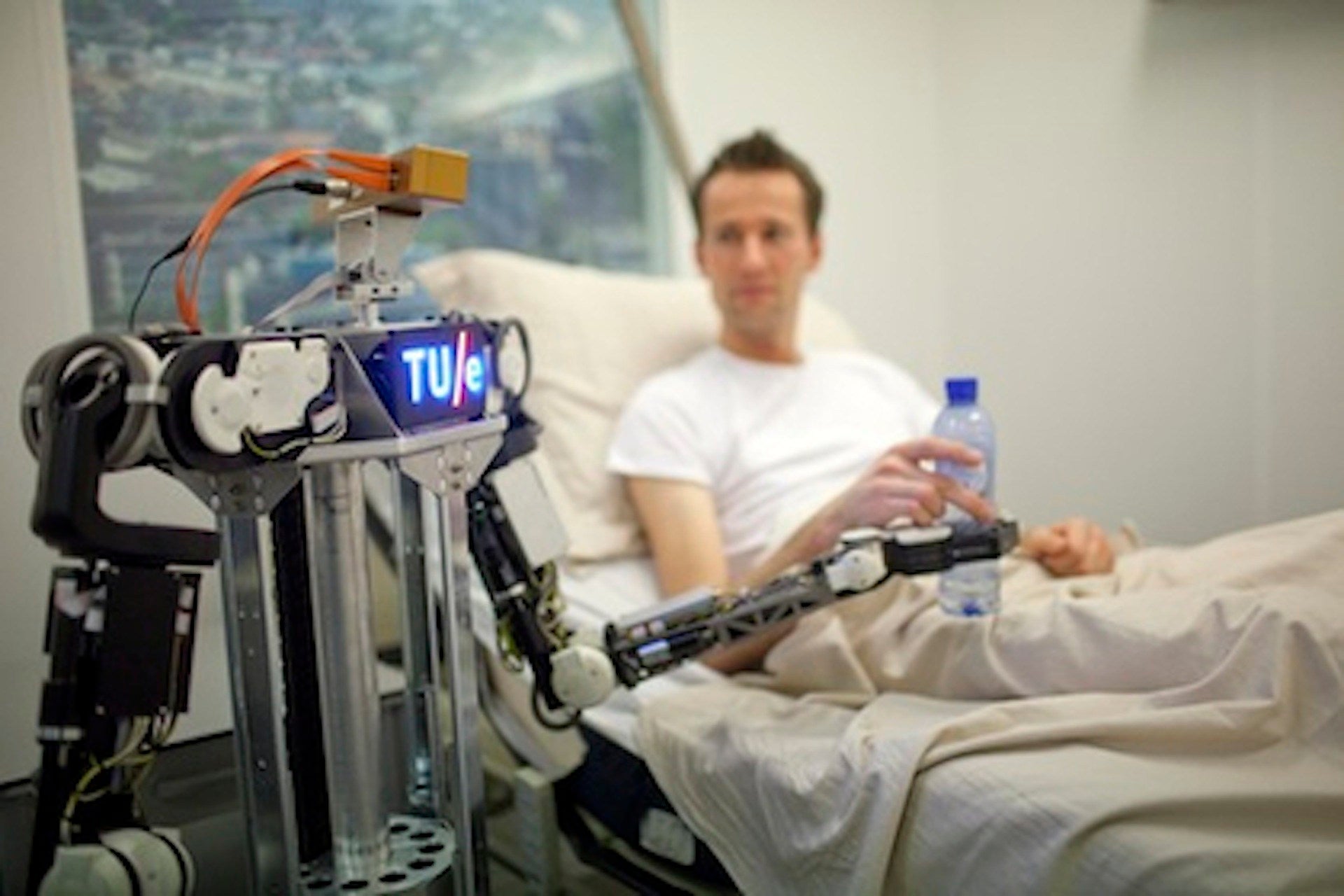Robots to get their own internet to share tips and learn from one another
“The goal is to allow robotic systems to benefit from the experience of other robots, paving the way for rapid advances in machine cognition"

Robots will be able learn, share and procrastinate like the rest of us when, on Thursday, the new Robot-Internet is tested by Eindhoven University.
The project called RoboEarth Cloud Engine (also called Rapyuta) will be demonstrated by four robots working together in a hospital room at the Dutch University.
These robots will use the cloud-based database – a shared brain of sorts – to complete a series of tasks, including serving drinks to patients.
On its site, RoboEarth announced: “These robots will use RoboEarth as a knowledge base, communication medium, and computational resource to offload some of their heavy computation.”
This world wide web for robots will provide software components, maps for navigation, task knowledge and object recognition models.
“The goal of RoboEarth is to allow robotic systems to benefit from the experience of other robots, paving the way for rapid advances in machine cognition and behaviour, and ultimately, for more subtle and sophisticated human-machine interaction,” the website explains.
If successful, RoboEarth will be an important step in the development of robot assistants for the disabled or elderly, which experts believe will be made available in the next 10 years.
Funded by the EU, the RoboEarth project, a collaboration of scientists from the Universities of Eindhoven, Zurich, Stuttgart, München, and Zaragoza, has been in the works for four years.
The project has its opponents though.
"In the short term, RoboEarth adds security by building in a single point of failure for all participating robots," James Barrat, a science author and journalist, has told the BBC.
"In the longer term, watch out when any of the nodes can evolve or otherwise improve their own software. The consequences of sharing that capability with the central 'mind' should be explored before it happens."
We would be mindful to remember the moral of acclaimed sci-fi series Battlestar Galactica: AI is a slippery slope.
Join our commenting forum
Join thought-provoking conversations, follow other Independent readers and see their replies
Comments
Bookmark popover
Removed from bookmarks